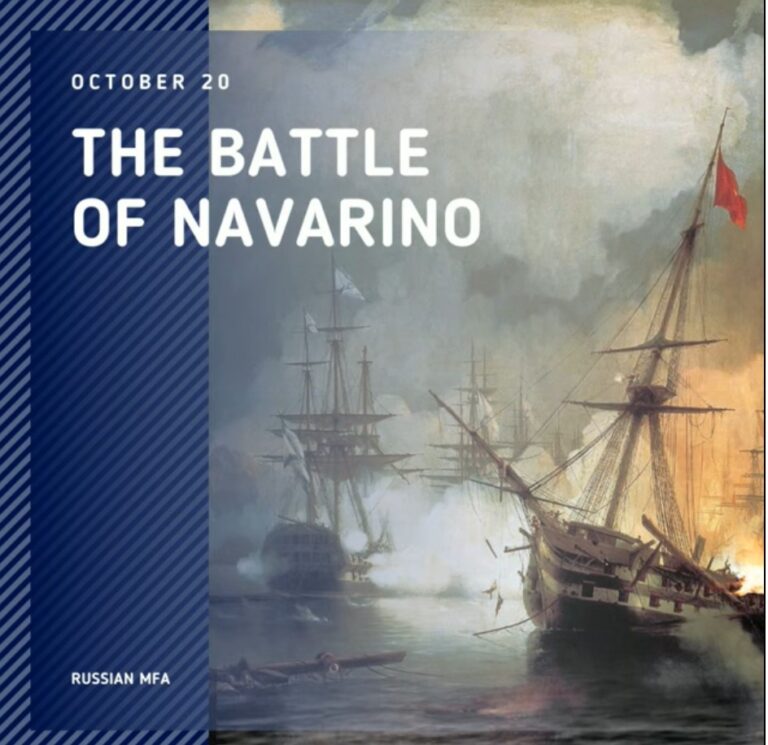
The Russian Foreign Ministry has chosen to commemorate the 193rd anniversary of the Battle of Navarino with an anniversary post, which may also contain a hidden message to Turkey.
Specifically, on Tuesday, the Foreign Ministry posted on its official Twitter account a video dedicated to the 193rd anniversary of the Battle of Navarino, which, through the sinking of the Ottoman fleet, led a little later to the recognized independence of Greece after hundreds of years of Turkish occupation.
The video posted shows the sinking of Ottoman ships.
On October 20, 1827, in the Gulf of Navarino, the naval forces of Russia, France and Great Britain dealt a major blow against the the combined forces of Egyptians and Turks, supporting the struggle of the Greeks for freedom and independence.
"193 years ago, the combined squadron of Russia, Great Britain and France defeated the Turkish-Egyptian fleet in the Bay of Navarino. The triumph of the allied fleet became one of the prerequisites for Greece's independence," the Russian Ministry of Foreign Affairs announced on social media.
The post follows that of the Russian embassy in Greece on the recognition of the right to extend the territorial waters of all countries up to 12 nautical miles, a position that coincides with not only Greece and international law, but directly opposes Turkish claims.
A few days ago, the embassy tweeted about the validity of the UN Convention on the Law of the Sea and the Mediterranean, saying:
"Russia’s position as a permanent member of the UN Security Council is the starting point. We consider the 1982 UN Convention on the Law of the Sea the ‘cornerstone’ of international maritime agreements. The Convention explicitly provides for the sovereign right of all States to have territorial waters up to 12 nautical miles and sets out the principles and methods for delimiting the [Exclusive Economic Zone]. This also applies to the Mediterranean."